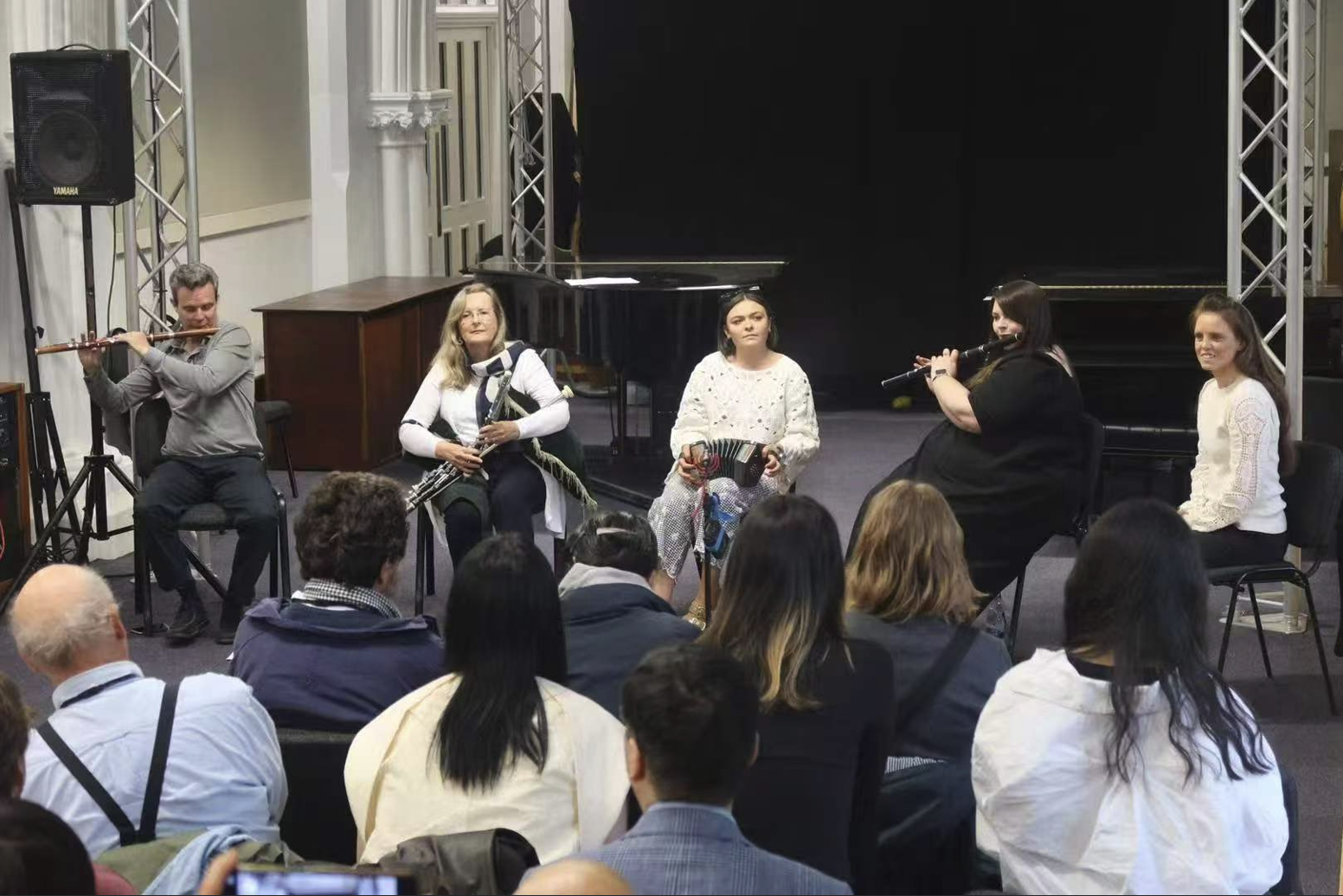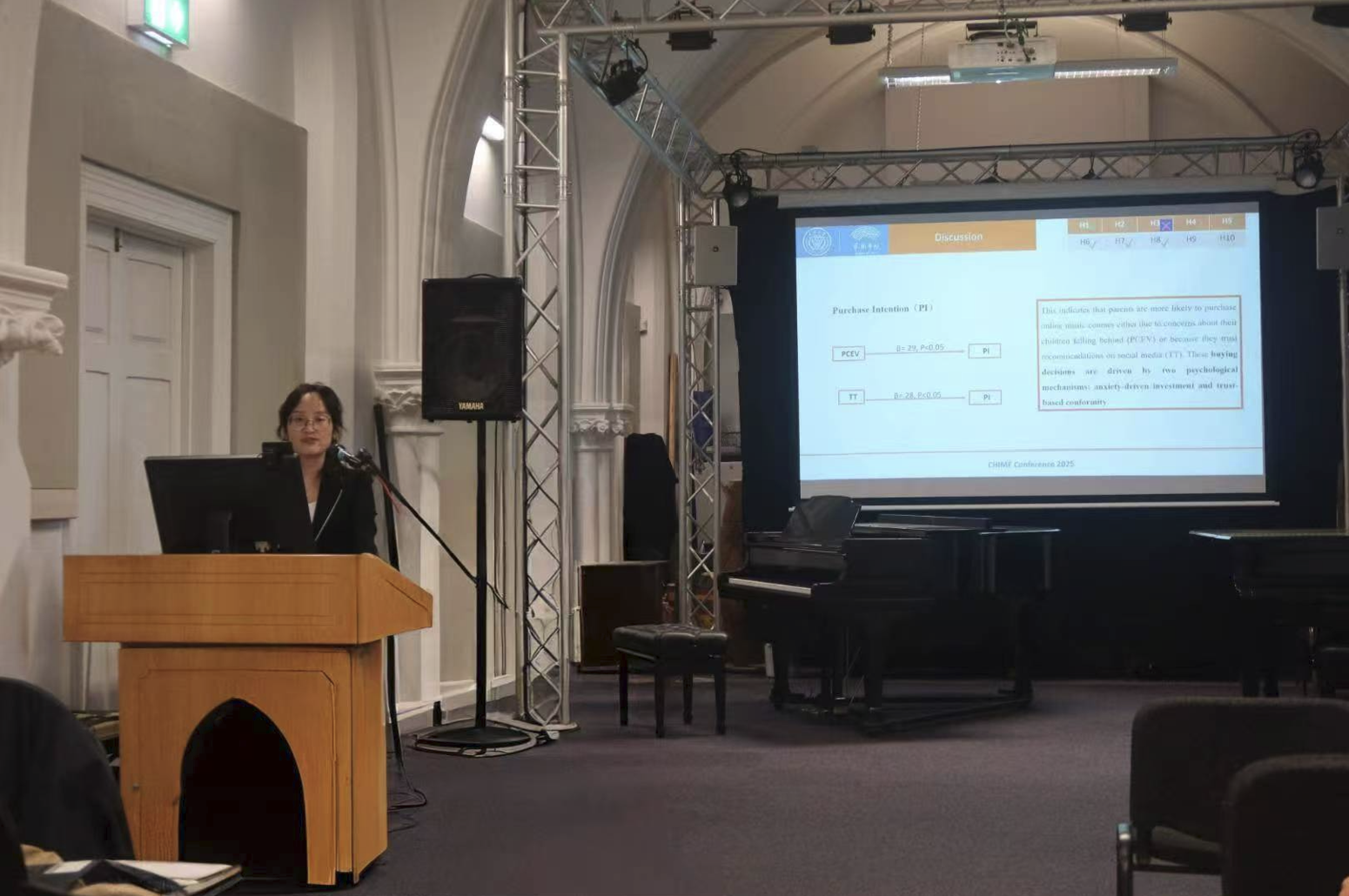From July 4 to 8, 2025, the 28th Annual Conference of the European Foundation for Chinese Music Research (CHIME) was held at University College Cork, Ireland. Faculty member of the Music Department, School of Arts, Chongqing University, Zhou Jue, was invited to attend the conference and presented the accepted paper titled "Social Media-Facilitated Online Music Education." This showcased the school's latest achievements in digital research on Chinese music and its active engagement in international academic exchange.
The annual conference, organized by the European Foundation for Chinese Music Research (CHIME) and hosted by University College Cork, was held under the theme "Digital Futures for Chinese Music." The event featured 13 thematic sessions that facilitated in-depth discussions on the interaction between digital media and Chinese music. It was complemented by traditional music workshops, puppet theater workshops, and roundtable forums, focusing on new trends and pathways for the integrated development of Chinese music and digital technology. Participating experts and scholars came from renowned universities and research institutions worldwide, including the University of Oxford, University of Cambridge, Duke University, Durham University, Chongqing University, Central Conservatory of Music, and Sydney Conservatorium of Music. Their expertise spanned multiple disciplines such as ethnomusicology, music education, music psychology, anthropology, digital humanities, and intangible cultural heritage studies, fully demonstrating interdisciplinary and cross-regional depth in dialogue and collaboration.

During the conference, grounded in social learning theory and incorporating survey data from multiple art training institutions in the Chongqing area, Zhou Jue proposed an online music education behavior model based on social media cues and provided an in-depth analysis of participants' psychological mechanisms. Experts at the conference highly commended the study for its clear model and robust evidence, noting its significance in understanding how digital platforms facilitate music learning. They also suggested conducting cross-cultural validation to further examine the model's robustness.

As one of the world's most influential platforms for Chinese music research, CHIME has been committed to promoting international academic exchange and cross-cultural dissemination of Chinese music since its establishment in the 1990s. This year's conference, aligning with the trends in digital humanities and artificial intelligence, highlighted the interdisciplinary expansion and practical value of Chinese music research within a global perspective. The participation not only enhanced the international academic visibility and engagement of the School of Arts in the fields of Chinese music research and digital humanities but also created opportunities for future academic collaborations.




